6. Composition of the Working Group on Human Rights and Academic Freedom
Meet the candidates: Julie Billaud, Ruba Salih, Chandana Mathur, Helena Zohdi and Hayal Akarsu

The Working Group on Human Rights and Academic Freedom has been constituted following a selection procedure carried out by the executive committee among six candidates. The group’s aims are to monitor violations of, and gather evidence on academic freedom and human rights violations, to initiate policies accordingly, to create structures of support: guidelines for universities, “best practices” on academic freedom, and to organise events on academic freedom. The group will offer a space to discuss these issues within EASA and will foster a culture of academic freedom in our association and more broadly in Europe.
Julie Billaud
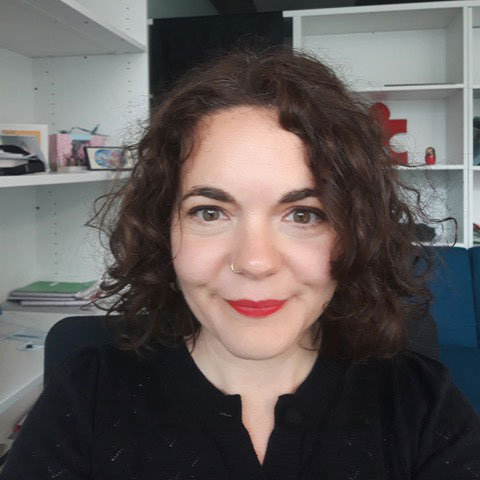 I am a legal and political anthropologist working on human rights and humanitarianism and an Associate Professor at the Geneva Graduate Institute. I have studied these themes through ethnographic fieldwork in Afghanistan, Britain, in Geneva at the United Nations and transnationally, with the International Committee of the Red Cross. In these different sites, I have examined how notions of rights, justice and accountability are operationalized in everyday practices. I have been an active member of EASA since 2012. In 2021, I became co-convener of LAWNET (with Agathe Mora). As a member of the editorial collective of the open-access publication platform Allegra Lab, I am dedicated to making scholarly debates more accessible and relevant to understand contemporary world events. Above all, I am committed to helping find ways to tackle some of the most pressing human rights issues affecting our anthropological community, notably the current suppression of academic freedom and freedom of expression on universities’ campuses.
I am a legal and political anthropologist working on human rights and humanitarianism and an Associate Professor at the Geneva Graduate Institute. I have studied these themes through ethnographic fieldwork in Afghanistan, Britain, in Geneva at the United Nations and transnationally, with the International Committee of the Red Cross. In these different sites, I have examined how notions of rights, justice and accountability are operationalized in everyday practices. I have been an active member of EASA since 2012. In 2021, I became co-convener of LAWNET (with Agathe Mora). As a member of the editorial collective of the open-access publication platform Allegra Lab, I am dedicated to making scholarly debates more accessible and relevant to understand contemporary world events. Above all, I am committed to helping find ways to tackle some of the most pressing human rights issues affecting our anthropological community, notably the current suppression of academic freedom and freedom of expression on universities’ campuses.
Ruba Salih
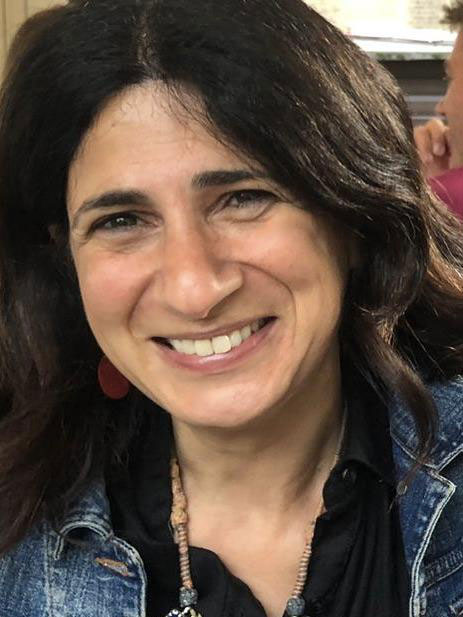 I am currently a Professor of Anthropology at the University of Bologna. My research interests and writing include transnational migration and diasporas across the Middle East and Europe, colonisation and decolonisation, gender memory and colonial traumas- with Italy, Morocco, the Occupied Palestinian Territories, Lebanon and Jordan as main sites of my fieldwork. In the past ten years my research has focused on Palestinian refugees and their imaginaries of rights, through a decolonial perspective. Before joining Bologna University in 2022, I was Professor in the Department of Anthropology at SOAS, University of London. From 2015 to 2019 I was a member of the Board of Trustees of the Arab Council for the Social Sciences where I was part of the academic freedom sub-committee. Currently, I am part of the Executive Board of Insaniyyat, Society of Palestinian Anthropologists. Academic freedom is core to my scholarly ethics and mission. As part of the EASA working group, I am committed to promote and protect spaces for anthropological critical thinking and writing, and to implement measures to ensure our association is equipped to deal with the challenges that are incumbent upon us.
I am currently a Professor of Anthropology at the University of Bologna. My research interests and writing include transnational migration and diasporas across the Middle East and Europe, colonisation and decolonisation, gender memory and colonial traumas- with Italy, Morocco, the Occupied Palestinian Territories, Lebanon and Jordan as main sites of my fieldwork. In the past ten years my research has focused on Palestinian refugees and their imaginaries of rights, through a decolonial perspective. Before joining Bologna University in 2022, I was Professor in the Department of Anthropology at SOAS, University of London. From 2015 to 2019 I was a member of the Board of Trustees of the Arab Council for the Social Sciences where I was part of the academic freedom sub-committee. Currently, I am part of the Executive Board of Insaniyyat, Society of Palestinian Anthropologists. Academic freedom is core to my scholarly ethics and mission. As part of the EASA working group, I am committed to promote and protect spaces for anthropological critical thinking and writing, and to implement measures to ensure our association is equipped to deal with the challenges that are incumbent upon us.
Chandana Mathur
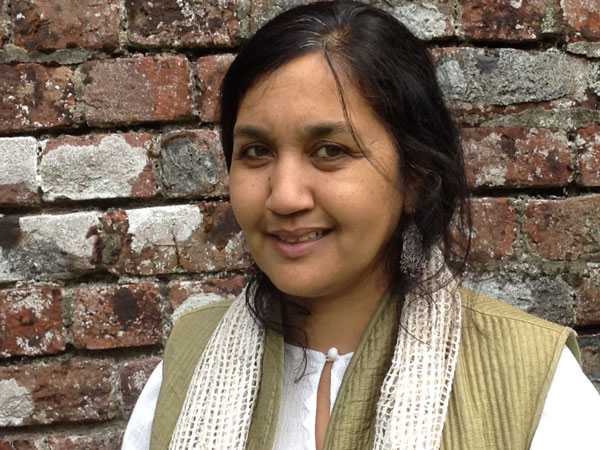 I am an Associate Professor of Anthropology at Maynooth University in Ireland. Drawing on the perspectives of anthropological political economy and political ecology, my research focuses principally on the contemporary United States, South Asia and the South Asian diaspora.
I am an Associate Professor of Anthropology at Maynooth University in Ireland. Drawing on the perspectives of anthropological political economy and political ecology, my research focuses principally on the contemporary United States, South Asia and the South Asian diaspora.
While serving as EASA Vice-President (2021-2023), I was part of the Executive’s ‘Emerging Issues’ working group with Cris Shore and Chowra Makaremi, dealing specifically with issues of academic freedom and human rights. I have been actively involved since 2009 with Scholars at Risk (SAR), an organisation committed to protecting academic freedom globally. I was one of the Maynooth academics whose efforts established Maynooth University as the host institution for SAR – Europe. I served as one of the two Human Rights Seats at the American Anthropological Association’s Members’ Programmatic, Advisory and Advocacy Committee (MPAAC) in 2021-23, and previously, in 2020-21, as MPAAC’s Human Rights Liaison. I am also a former Chair of the World Council of Anthropological Associations (2016-18).
Helena Zohdi
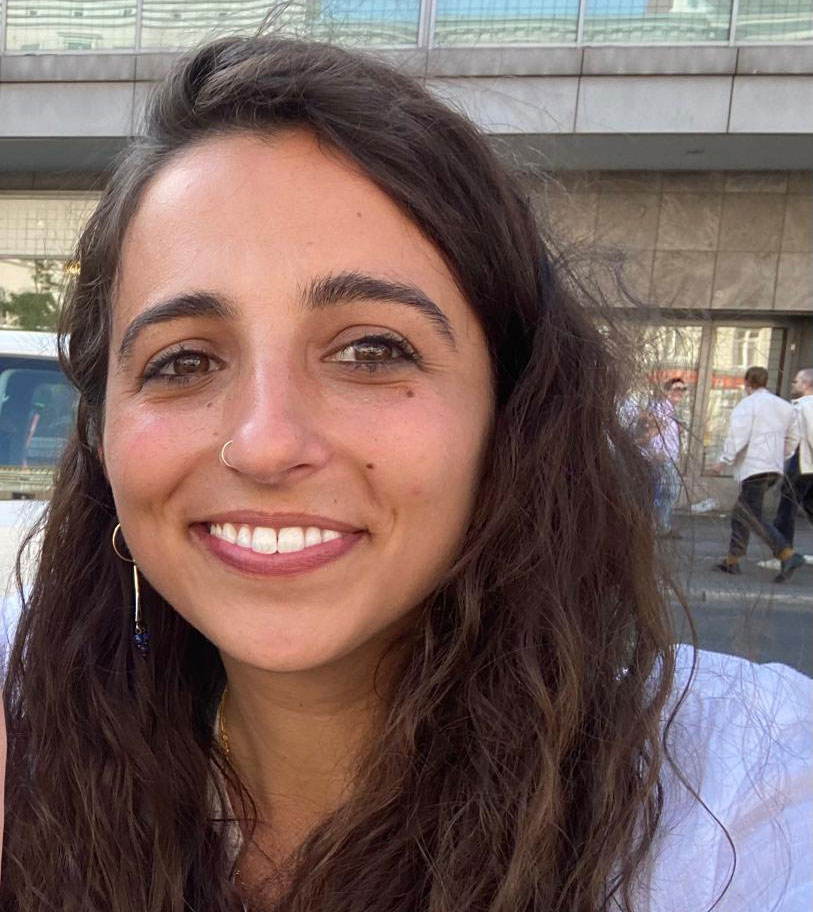 Helena Zohdi is a PhD Candidate at the Department of Social and Cultural Anthropology at Goethe University Frankfurt. Her doctoral thesis focuses on the contemporary materialisation of Marxism in the theory and practice of Egyptian Revolutionary Socialists. She completed her studies in political theory at Goethe University in cooperation with the Technical University of Darmstadt. Her research interests include left melancholy, traveling theory, the role of propaganda and agitation in leftist movements, and exile activism.
Helena Zohdi is a PhD Candidate at the Department of Social and Cultural Anthropology at Goethe University Frankfurt. Her doctoral thesis focuses on the contemporary materialisation of Marxism in the theory and practice of Egyptian Revolutionary Socialists. She completed her studies in political theory at Goethe University in cooperation with the Technical University of Darmstadt. Her research interests include left melancholy, traveling theory, the role of propaganda and agitation in leftist movements, and exile activism.
Hayal Akarsu
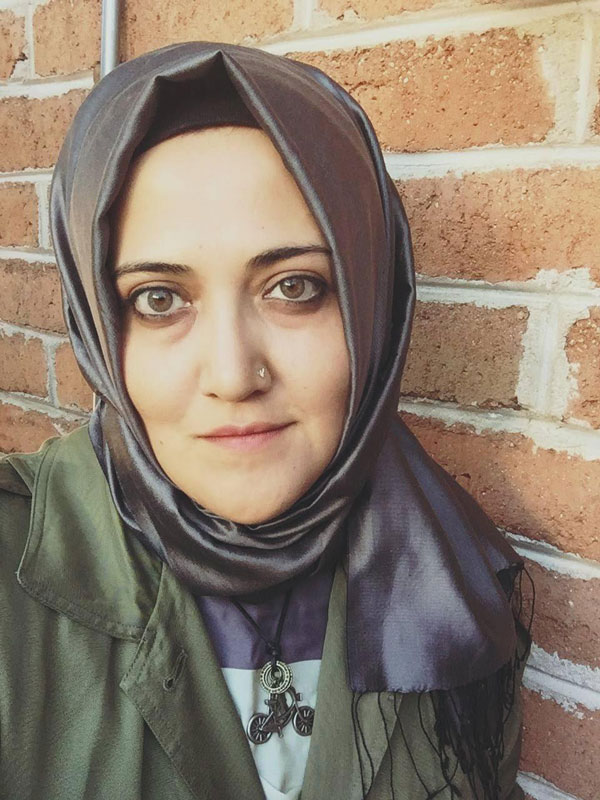 Hayal Akarsu is Assistant Professor of Cultural Anthropology at Utrecht University. Previously, she was a Junior Research Fellow in the Crown Center for Middle East Studies and Lecturer in Anthropology at Brandeis University. She obtained her PhD in 2018 from the School of Anthropology at the University of Arizona, and her MA in 2012 from Near Eastern Studies at New York University (NYU). From her current book project on police reforms to her ongoing research on digital policing and environmental crimes, Akarsu explores how various imaginations of risk and threat securitize and police different realms of social and natural life. Her book manuscript, Force Experts: Afterlives of Police Reforms in Turkey, explores the connections between policing, human rights, transnational flows and governance, and lived experiences of security and insecurity. In addition, her research projects have resulted in publications in prestigious academic journals such as American Ethnologist, American Anthropologist, Anthropology Today, and Society and Space, among others. Akarsu is a member of the Executive Committee of EASA (European Association of Social Anthropologists) and the Board of APLA (Association of Political and Legal Anthropology).
Hayal Akarsu is Assistant Professor of Cultural Anthropology at Utrecht University. Previously, she was a Junior Research Fellow in the Crown Center for Middle East Studies and Lecturer in Anthropology at Brandeis University. She obtained her PhD in 2018 from the School of Anthropology at the University of Arizona, and her MA in 2012 from Near Eastern Studies at New York University (NYU). From her current book project on police reforms to her ongoing research on digital policing and environmental crimes, Akarsu explores how various imaginations of risk and threat securitize and police different realms of social and natural life. Her book manuscript, Force Experts: Afterlives of Police Reforms in Turkey, explores the connections between policing, human rights, transnational flows and governance, and lived experiences of security and insecurity. In addition, her research projects have resulted in publications in prestigious academic journals such as American Ethnologist, American Anthropologist, Anthropology Today, and Society and Space, among others. Akarsu is a member of the Executive Committee of EASA (European Association of Social Anthropologists) and the Board of APLA (Association of Political and Legal Anthropology).






